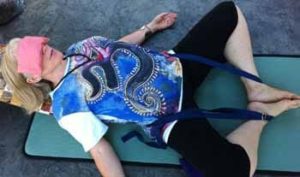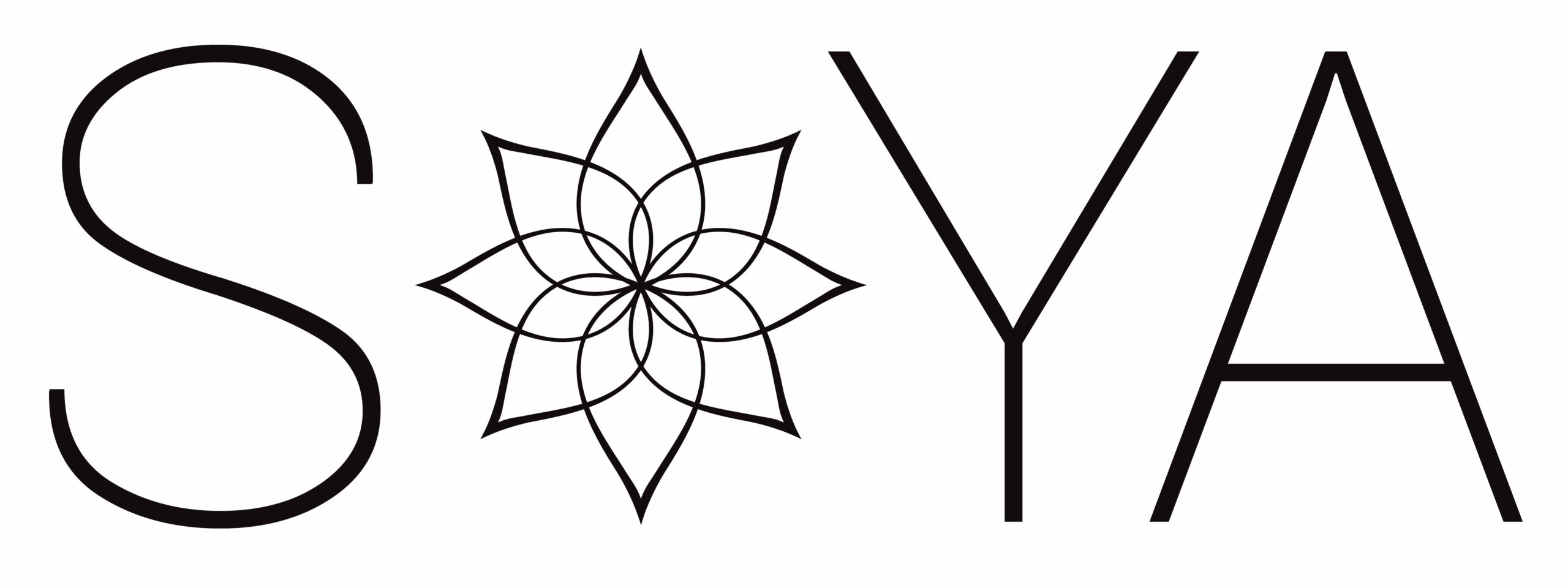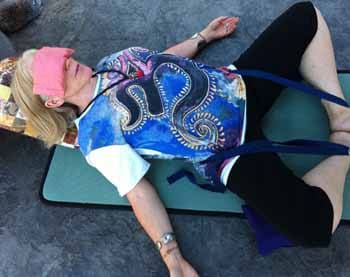Contributed by Helen Mikuska, SOYA, ERYT500, IYTA and SOYA Teacher Trainer. Helen is a lead trainer for the SOYA Teacher Training and is offering a workshop on Yoga for Menopause, Sunday, October 19, 2014 at Harmony Yoga Pilates Studio in Calgary. For more information visit www.harmonyyogapilatesstudio.ca/workshops
As part of the natural aging process, the body produces smaller and smaller quantities of reproductive hormones. The ovaries and uterus shrink and ultimately the menstrual cycle ceases. Menopause is a gradual process that may extend over several years. Usually it occurs between 45-55 years of age, but may occur earlier. Other factors affecting the age of menopause is one’s general standard of nutrition, weight and whether or not one has had children. An early menopause can occur as a result of disease or surgical removal of the ovaries. Hysterectomy usually does not precipitate menopause unless both ovaries are removed. The decline of estrogen and progesterone triggers minor changes in the bones, skin and circulatory system but essentially all the menopause really signifies is that a woman can no longer achieve a child. Women may experience hot flashes, vaginal atrophy, weight gain, headaches, digestive upset, dizzy spells, palpitations, blood pressure irregularities, insomnia, lethargy, irritability and depression. They are not directly related to the fall in estrogen, but the stress of hormonal fluctuations do influence a woman’s mood and these difficulties could then be precipitated in more vulnerable women.
For women who have been practicing yoga in earlier years often physical difficulties at menopause are less intense and any emotional disturbances practically non-existent. As with all hormonal imbalances, yoga asanas have a tremendous stabilizing effect. Some estrogen continues to be produced by the liver and kidneys even after the ovaries cease their secretions, and the correct yoga practices can stimulate these extra sources as partial compensation for loss of ovarian hormones. For those who have not been practicing yoga before, it is never too late to begin. Women who have undergone a hysterectomy or other major operations are equally able to commence. Workshop will include the practice of asana, learning pranayamas specific to menopause along with some suggested mantras and mudras.
Supta baddhakonasana:

Sit in butterfly pose with a bolster behind your back and a block underneath each knee. Wrap a strap around your waist and tuck it under your ankles. Breathe in, then exhale as you recline onto your bolster. Place an eyebag over the eyes. Place a folded
blanket under your head for comfort if desired. Relax here for up to 10 minutes.
This pose is beneficial for irregular periods, heavy bleeding, insomnia, headaches, eye strain and fatigue.
Celebrating over 25 years of Teacher Training


Recent Comments